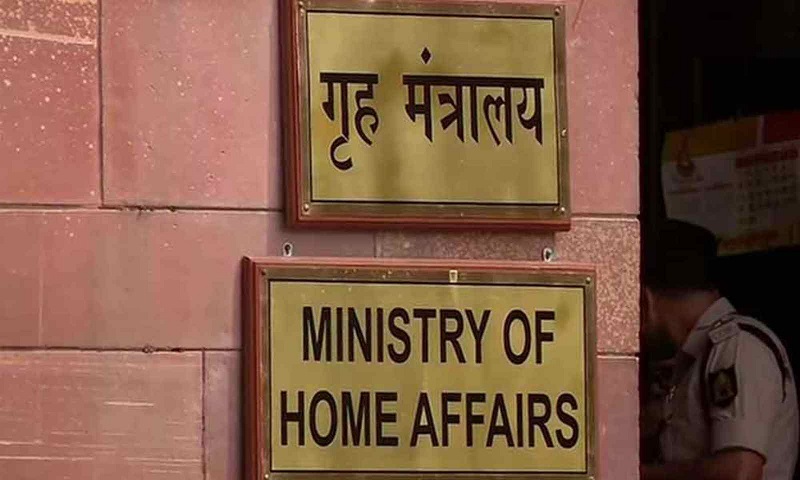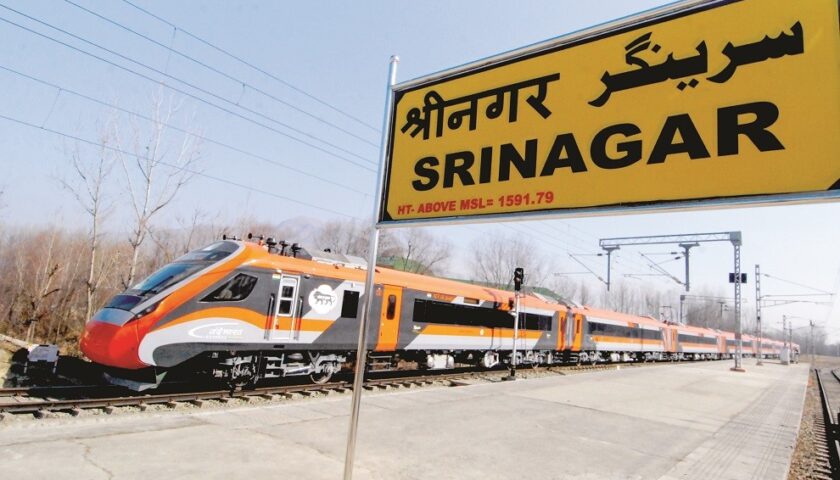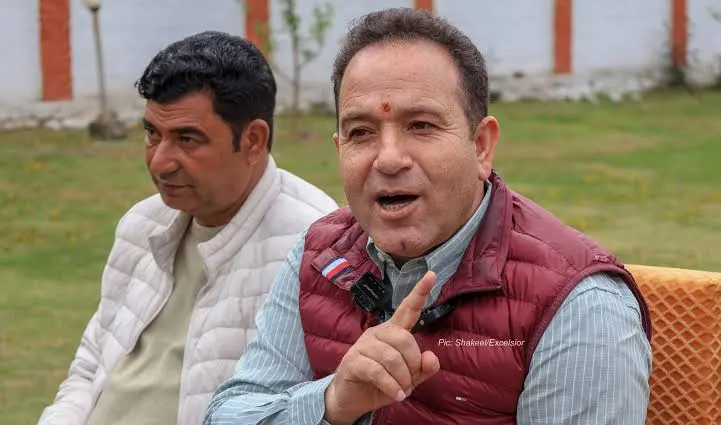MHA Tells High Court That L-G Can Nominate MLAs Without Elected Government’s Advice
By: Javid Amin | 11 Aug 2025
In a move that has ignited a fresh round of political and constitutional debate in Jammu & Kashmir, the Ministry of Home Affairs (MHA) recently told the Jammu & Kashmir High Court that the Lieutenant Governor (L-G) holds statutory authority to nominate five members to the J&K Legislative Assembly without the aid and advice of the elected government.
This assertion is rooted in the Jammu and Kashmir Reorganisation Act, 2019 and its subsequent amendments. The MHA insists that the L-G is a statutory functionary — an independent constitutional role — and not merely an extension of an elected Council of Ministers.
If the Centre’s position stands, it means the L-G can unilaterally nominate MLAs representing Kashmiri migrants, women, and residents from Pakistan-occupied Jammu and Kashmir (PoJK), without seeking concurrence from the ruling party or Cabinet.
While the Centre frames this as a move for inclusive representation, opposition parties have called it an erosion of democratic principles and a contempt for the people’s mandate. The controversy comes at a politically sensitive time — with Jammu & Kashmir’s first Assembly elections in over a decade expected in the near future.
Legal Basis Explained: Sections 15, 15-A, and 15-B of the J&K Reorganisation Act
To understand why the MHA says the L-G can nominate MLAs without elected government advice, we have to go back to August 5, 2019, when Parliament revoked Jammu & Kashmir’s special constitutional status under Article 370 and passed the Jammu and Kashmir Reorganisation Act, 2019.
Original Structure
The Act reorganised the former state into two Union Territories — Jammu & Kashmir (with a legislative assembly) and Ladakh (without one). It also redefined governance in J&K, giving the L-G a stronger role, much like in other UTs such as Delhi and Puducherry.
Initially, the Act provided for 107 seats in the J&K Assembly, with 24 seats kept vacant for areas under Pakistani control (PoJK). After delimitation, the elected strength became 90 seats.
The 2023 Amendment
In 2023, Parliament introduced Sections 15-A and 15-B to ensure representation of historically displaced and marginalised groups:
-
Section 15-A: Mandates the nomination of two members from the Kashmiri migrant community, one of whom must be a woman.
-
Section 15-B: Mandates the nomination of one member representing PoJK residents.
-
Provision for two women members to be nominated if women are underrepresented.
These nominations are in addition to the 90 elected members, taking the total to 95.
Statutory Authority
The key legal question is whether the L-G can make these nominations independently or only on the aid and advice of the Council of Ministers. The MHA’s position is that the Act itself gives the L-G discretion, meaning no consultation is needed. This is a departure from the traditional principle in parliamentary systems where the head of state acts on government advice.
Who Are the Nominated Members? Composition and Representation
The law envisages a diverse and inclusive representation through nominations:
-
Two women members — to address gender imbalance.
-
Two Kashmiri Pandit (migrant) representatives, including one woman — acknowledging the displacement of Pandits in the 1990s due to insurgency.
-
One resident from PoJK — symbolising the constitutional claim over territories under Pakistani control and recognising displaced persons from those areas.
Why These Categories Matter
-
Kashmiri Migrants: Forced to leave the Valley in the early 1990s amid insurgency, their political voice has been diluted for decades. Direct nomination ensures representation without relying on geographically tied constituencies they no longer inhabit.
-
PoJK Residents: Although the 24 PoJK seats in the Assembly remain vacant, nominating one representative offers symbolic and functional inclusion.
-
Women’s Representation: Historically, the J&K Assembly has had low female participation; this mechanism can boost their legislative presence.
From a governance perspective, the move could enhance diversity and pluralism. But politically, critics argue it allows the Centre to influence Assembly numbers in a close contest.
MHA’s Legal Stand: L-G Powers Are Discretionary, Not Guided by Elected Government
In its affidavit before the High Court, the MHA made several core arguments:
-
Statutory Independence: The L-G is a statutory functionary under the J&K Reorganisation Act, not bound by the advice of the elected Cabinet in matters where the Act explicitly grants discretion.
-
Purpose of Nomination: To ensure representation for communities otherwise excluded by the electoral process.
-
Comparable Precedents: Other Union Territories, like Puducherry, also have provisions for nominated MLAs — often appointed by the central government or L-G without Cabinet approval.
-
Political Motivation Allegation: The MHA alleged that the petition challenging this provision was “politically motivated” and intended to create a constitutional controversy for partisan gain.
Legally, the Centre is betting on a narrow reading of constitutional conventions in UTs, where Parliament can legislate powers differently from states.
Context: Why This Matters Post-2019 Reorganisation of J&K
The debate over the L-G’s nomination powers cannot be separated from the broader political and legal transformation of J&K since August 2019.
-
Loss of Special Status: Article 370’s abrogation removed J&K’s autonomy over legislative and administrative matters.
-
Union Territory Model: By converting J&K into a UT with a legislature, the Centre significantly increased its control over governance. The L-G, appointed by the President, now has powers akin to a governor but with greater central oversight.
-
Pending Elections: The last Assembly elections were held in 2014. With fresh polls anticipated, the rules governing composition and nomination are politically charged.
In this post-370 context, even procedural rules about nominations become symbolically and practically significant.
Political Backlash: Opposition’s Concerns Over Democratic Norms
The Centre’s stance has drawn sharp criticism from opposition parties:
-
National Conference (NC): Called it “contempt for the people’s mandate,” warning it undermines parliamentary democracy by letting unelected officials alter Assembly composition.
-
Mehbooba Mufti (PDP): Described it as a “blatant subversion of democracy” and cautioned that silence now would mean complicity later.
-
Congress (Ravinder Sharma): Filed a Public Interest Litigation (PIL) challenging the constitutionality of Sections 15, 15-A, and 15-B, arguing it could distort the power balance in a closely contested Assembly.
-
CPI(M)’s Tarigami: Asserted that electoral democracy must remain the sole route to legislative power, except for rare exceptions.
Opponents frame the move as centralisation in disguise, potentially allowing the Centre to tip the scales in a hung Assembly.
Next Hearing: August 14 – The Court’s Role
The High Court has scheduled the next hearing for August 14, 2025. At this stage:
-
The petitioner (Ravinder Sharma) will file a rejoinder to the MHA’s affidavit.
-
The court will examine whether the provisions violate the basic structure of the Constitution, particularly representative democracy and federalism.
-
A ruling could set an important precedent on how far Parliament can go in designing governance structures for Union Territories.
The legal questions extend beyond J&K — they touch on the very relationship between elected governments and central appointees.
Broader Implications: Federalism, Representation, and Democracy
If upheld, the L-G’s unilateral nomination powers could:
-
Strengthen Central Influence: In UTs with legislatures, the Centre could shape outcomes without direct electoral engagement.
-
Test Federal Principles: The balance of power between Union and states/UTs could tilt further toward centralisation.
-
Spark Replication: Other UTs might adopt similar discretionary nomination powers.
-
Challenge Democratic Purity: While inclusion is valuable, critics say nominations should not be a backdoor to legislative influence.
Supporters, however, argue that representation and stability sometimes require mechanisms beyond direct elections — especially in conflict-affected or demographically unique regions like J&K.
Conclusion: Balancing Representation and Democratic Legitimacy
The MHA’s declaration that the L-G can nominate MLAs without elected government advice is both legally defensible (under the Reorganisation Act) and politically contentious. It embodies the tension between:
-
Inclusivity (ensuring marginalised communities have a voice)
-
Democratic legitimacy (ensuring legislative composition reflects the people’s electoral will)
Ultimately, the High Court’s decision will not just decide a point of law — it will define the political architecture of post-370 Jammu & Kashmir and potentially influence how democracy functions in Union Territories across India.




